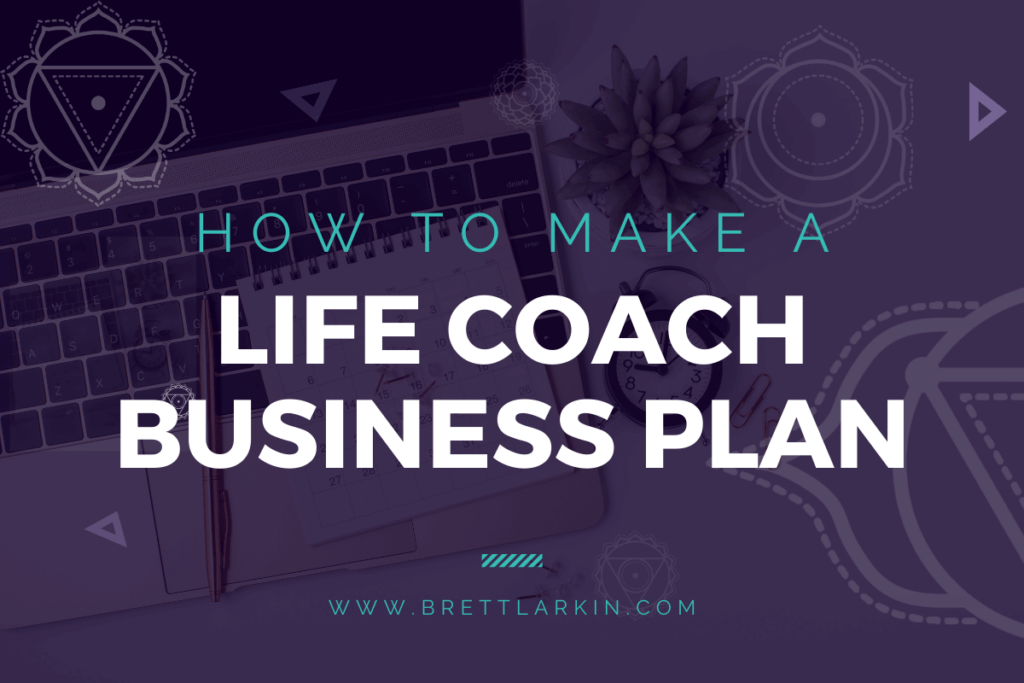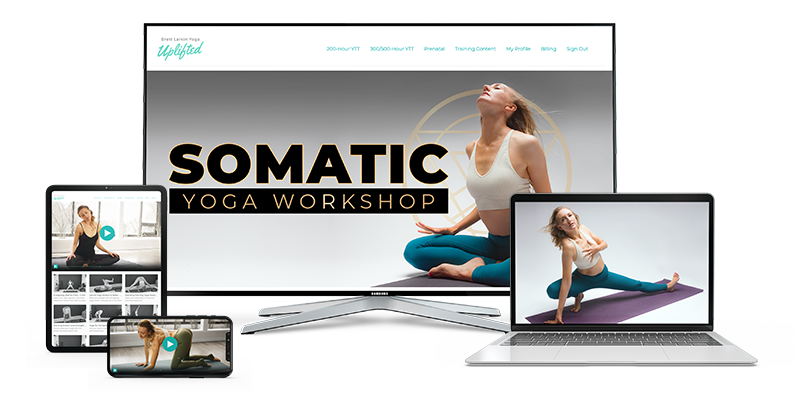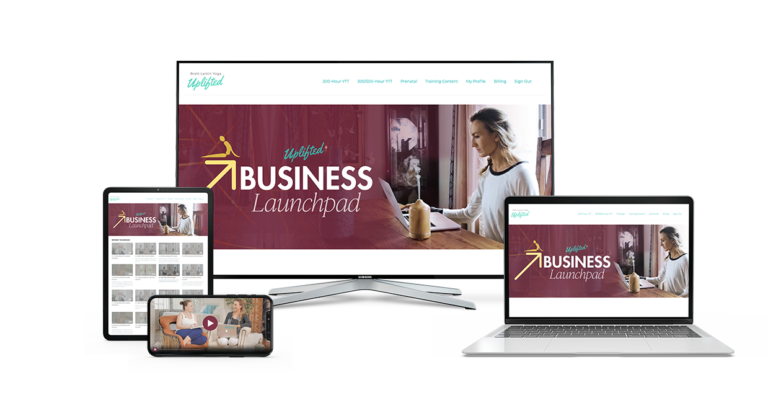
If you are anything like me, you have been traditionally educated. So, unfortunately, a lot of times that means we sat through classes wondering when we would ever need XYZ in real life. Unless we have a specific roadmap, core content does not include business courses.
And, we have spent all of this time getting certified to be life coaches so the last thing we want to do is invest more money into business courses just to learn how to be successful in our life coaching business.
So, I have compiled a quick frame of reference in the sections below to take away some of the guesswork, and give you some ideas that you can quickly and easily apply to your life coaching business plan to receive success sooner than later 😍.
Here’s everything you need to know to create a life coach business plan.
What Is Life Coaching
Life coaching is a type of wellness coaching that helps clients achieve a higher state of being. This can come in many forms, and there are many forms of life coaches as well. Overall, life coaches are significant because they help people explore within themselves, to identify their limitations/ things holding them back, and the answers for how to overcome those limits.
Those same elements are what makes life coaching different from other forms of coaching. As a life coach, you get to help people identify their personal and professional goals. Then, you get to help them create a course of action in order to help your clients reach the goals they have discussed with you.
The beauty here is that even after the conclusion of your time together, your client will be able to take the steps and principles learned with you to continue to improve elements of their lives. That is a very rewarding experience to have.
Why Every Life Coach Needs a Business Plan
A life coaching business requires more than just a good marketing plan. You also need a business plan, which includes a marketing strategy. The difference between the two, simply put, is:
- Business plans outline all of your big picture goals. Your current end game/ what you identify as what will be your definition of success right now.
- Your marketing plan is how you are going to use marketing to achieve the goals you identify in your business plan.
Now, why would you as a life coach need a business plan? Having a life coaching business plan will help keep you accountable and authentic to your business and your life coaching clients.
How to Start Your Life Coaching Business
Before we get into the key components of a life coaching business plan, it’s helpful to understand the general steps to starting your life coaching business. That way, we can develop clear goals and direction at each step.
These are the steps to start your life coaching business:
- Become a life coach: get certified as a life coach through an International Coaching Federation (ICF) accredited course.
- While going through your life coaching certification course, work on gaining a following on no more than 2 social media platforms.
- If you are looking to specialize in a specific category of coaching such as business coaching, performance coaching, executive coaching, spiritual coaching, relationship coaching, career coaching, etc. you will need to further your education by taking a course that is specific to those areas.
- Get your brand together from the look you are going for to the color palette you like.
- Do a competitive analysis to help you niche down. EX: I am a relationship coach helping women in their golden years rediscover who they are on their own after a long term relationship ends.
- Develop your marketing strategy and marketing plan.
- Determine your personal and professional goals for your coaching business.
- Construct a product suite filled with free, low, medium, and high ticket offers.
- Put together your group coaching or one on one coaching packages and begin to talk about what your coaching practice can achieve. Be vocal about who your ideal clients are. Ideally, your ideal clients should be acknowledged in your social media bios.
5 Key Components of a Life Coaching Business Plan
Below are some examples of what you should include in your life coach business plan. Feel free to omit, or add any sections as needed for your coaching business. This is merely a look at life coach business plan examples to help your own life coaching business be successful.
1. Business Identity and Branding
Your business identity and branding need to appeal to your target market, yes. However, it needs to also stay true to who you are as a coach and an individual. If you do not stay true to yourself, it will become hard at some point to continue to deliver your message when attempting to speak to people based on what you THINK they want as opposed to what you know and can successfully deliver.
Your brand identity is how you present yourself to the public aka your followers and potential clients. Some things to consider:
- How do you dress?
- What colors do you like?
- Do you prefer luxury or the great outdoors?
- Ocean or mountains?
- Spring or fall?
Overall, you want to ask yourself every possible question about how you present yourself so that you can consistently show up as yourself, and also offer your coaching services in a way that your target market will want.
Your branding is what distinguishes you from your competition. There are thousands of life coaches out there that help every niche imaginable, so your branding is what sets you apart from those other coaches.
The main question you should ask yourself is, how will people always know this is me? Maybe that’s a logo, a specific color palette, a certain symbol. Think back to your brand identity and determine which of these branding methods would best work with your coaching practice, and your niche in order to best serve your online coaching business.
Again… consistency is key. The goal is for your audience to ALWAYS know it is you and once they notice it is you, your potential clients will always read your posts. Thus, leading to your successful life coaching business.
2. Defining Your Target Client
You can read more in-depth about this in how to get clients for life coaching, but there are 2 really important aspects worth mentioning.
2.1: You need to have a clear and specific niche.
If you say you help everyone, you are actually helping no one. 🔥 While you may actually be able to help everyone, you have to first help someone. Knowing who you help, how you help them, and what you will do to help them get results is paramount to your business plan. As you grow or move on from certain niches, you can always re-evaluate your niche and who you help. Your marketing strategy will also change with you.
2.2: Create a client avatar.
This will help you consider different facets of all kinds of people. It will help you decide where your clients are coming from and where they want to go. The better you know your client, the better you can meet them where they are and serve them better. Most often, coaching programs have their students do this within the first three modules or weeks of their coaching certification. But, if for some reason you did not do that… Here is a worksheet I created to help you. Simply, make a copy and fill it in according to your coaching services.
3. Addressing Client Pain Points
Your clients’ pain points are what kind of issues they are up against. These are the issues you help them work through as their life coach. Their pain points should also be what all of your content within your business plan are centered around.
You should constantly be offering help and solutions for why they should work with you. Use that to let them know how you will help them move on from these issues.
Most often these pain points center around large concepts such as balance, freedom, clarity, mindset, inner peace, and confidence. Your job is to take the large concept that you help your clients achieve and break it down into smaller pain points that showcase the kinds of results you get your clients.
It will look something like this:
- pain point → results you get your clients = how you’re marketing your coaching services
For example:
- intense PMS symptoms → calmer menstrual cycles = menstrual cycle awareness coaching program
4. Your Unique Solution
Your unique solution is the HOW. HOW you get your clients the results they want. For instance, I have the RISE method in which I help my clients identify their higher selves versus where they are. We then RISE by developing an action plan and doing the identity work in order to step into our power and embody our higher self until we actually BECOME her.
Your method doesn’t have to have a fancy name, but it does need to be something catchy that people will remember. Then, every time you talk about that method, people will say, “Oh. I keep hearing about her RISE method. I wonder what that is.” This falls into the branding and identity mentioned earlier.
Remember: there are hundreds of coaches in your niche, but your clients are paying to work with YOU. They like your messaging. They like your HOW. They like YOU.
5. Analyzing Your Competition
When it comes to analyzing your competition, do not overwhelm yourself. Instead do this:
- Choose 3 other experienced life coaches within your niche.
- I recommend choosing one with a large audience (10,000+ followers), a medium audience (5,000 followers), and small/ growing audience (less than 5,000 followers)
- Look at their freebies, low ticket, medium ticket, and high ticket offers
- What are they offering in each category? How much are they charging for their services in each category? What problem(s) are they solving?
- Anything else you find worth noting for the sake of market research
- Subscribe to their email list if they have one so you can stay up to date on their offers without having to do the digging again.
- The key here is not to compare yourself to or copy the other coaches, but more to know what problems other coaches with a like audience are solving and how they are helping their clients solve those problems.
- Take a look at your offers and determine how they are similar to and different from the research you just did.
- What is unique about their offers and who they are as a life coach/ their coaching method?
- What is unique about you and your own method? What problems do you solve?
By conducting this research, you are not only getting insight into the market and your target customers, but you are also getting clear about your messaging and how to use it to your advantage within your coaching business plan. You are also conducting a little customer analysis by looking at what kinds of problems your dream clients are looking to solve using a life coach. This research can also assist you in gaining a competitive advantage.
If you are needing some additional help finding your style, consider this 9 Day Find Your Style Yoga Challenge from Brett. Getting into the groove of finding your yoga style and coming back to your yoga practice will help you gain clarity for the hard answers regarding your uniqueness and style when it comes to branding methods.
Financial Aspects of Your Life Coaching Business Plan
While you can definitely utilize your individual profiles, shares, likes, comments, etc to drive traffic and convert sales, there are some money aspects of your life coaching business plan for you to consider as well.
Revenue Streams and Pricing
As previously mentioned, you should be using freebies, low ticket, mid- ticket, and high ticket sales strategy when it comes to your coaching business.
To break this pricing strategy down, consider:
- How much money you want to make a year, break that down further by deciding how much that means you need to make per month, per week, and per day.
- EX: if I want to make $50,000 in a year, that means I need to make $4,167 a month, $1,042 a week, and 148.81 per day
- To determine your numbers, take your goal income and divide it by 12 to get your monthly need, then divide that by 4 for your weekly need, and then that number should be divided by 7 for your daily need.
- Your ticketing prices should look like this:
- freebie= entirely free (usually at the cost of giving an email address to an email list)
- low ticket= anything under $100
- mid- ticket= anything under $1,000
- high ticket= anything over $1,000
Use the two bullet points above to determine how to price each of your ticket items in order to meet your annual income goal.
Budgeting and Expenses
Using your financial projections from the above sections, you will now need to decide how much of that income will be used to pay expenses within your business. If any adjustments need to be made to your bottom line once you figure this part out, that’s okay. This is why you do your business planning on the front end. 😃
Some expenses to consider:
- Coaching website (read about the best blog platforms)
- Online course platforms, if you plan on using those (some website providers have this option built in for an additional cost as well)
- Management team, if you plan to have one
- Continuing education or growth plan for you as a coach and for your
- Online advertising
- Other types of marketing costs include local events, networking events, chamber meetings, community organizations etc.
- Online business memberships
- Any other expense that could arise
While this list is not a full list of everything that could be an expense as a life coach, it is here to give you an idea of things to consider when it comes to both your operations plan and your life coaching business plan.
Brett has a really in-depth post about managing cash flow in a yoga business that could be helpful for you now.
Marketing and Promoting Your Life Coaching Business
Now that you have your financial plan and your expenses accounted for, it is time to create a life coaching business marketing plan.
Building an Effective Online Presence
While a website is not necessary, should you choose to use one make sure you include the following:
- An About page where your potential clients can read your company overview, background, certifications, why you started your spiritual journey, and where you are within it, and your passion for why you help people within your niche
- NOTE: try using some search engine optimization (SEO) to see what specific phrases you can include in your about page specifically when it comes to talking about your coaching business to increase your rankings when people use a search engine to find a life coach.
- Testimonials from previous clients, even if they just did one session with you, or they were a beta client, include it. People want social proof, so anything anyone that has worked with you in any capacity has said… include it.
- Your offers, every single one of them. You never know where your clients are within their own journeys so listing your offers with a brief description of what is included and the end result is necessary.
- An option to join your email list, whether via pop up and/ or an option as a footer on the bottom of each page, you want to make sure there are multiple opportunities on your website for your target customers to join your email list.
Read this thorough search engine optimization guide to educate yourself on how to publish content strategically.
For social media:
- Start with your bio, use this formula to help you create an optimal life coach bio: who you help (be very specific) + the problem you solve = results they get
- EX: I help bored women who know you are made for more step into your power, claim your purpose, and become your best self.
- Get your branding sorted for your coaching business, such as colors, vibe, and voice.
- Use your market research and competitor analysis to hone in on your messaging for your coaching business. Know exactly who you are talking to and WHY you are talking to them by constantly communicating the problems you solve and what those problems look like when manifested into the day to day life. Then, include how you help those problems go away.
- Do no post and ghost 👻 Simply posting to stories or your grid or profile will not do you any favors. As a life coach, you should set out 3-4 times a day for 10 minutes at a time to respond to any comments or DMs you get and also engage on other accounts as well. You are looking for visibility, so the more people you can get in front of the sooner your coaching business will get clients.
- Stay true to you and what your coaching business is. Do not make posts or stories around what you think people want to hear. Be authentic and always give the message that is both on brand for you and what YOU believe people NEED to hear.
If you have made it this far, and are still feeling uncertain and overwhelmed, head to Brett’s Yoga For Self Mastery course to see if that would be a good fit for you. She explores yoga as a tool for supporting you and your unique composition. Something like this can help you as a life coach and your coaching business by exploring your consciousness and what it is you bring to the table as a life coach and as a human.
Networking
Your coaching business plan should include networking and relationship building of all kinds. As for networking, your coaching business plan should absolutely include collaborating with other coaches. This again should be something that showcases your life coaching services and gives people a feel of what it would be like to work with you.
Some options to consider are:
- Being an IG live or podcast guest for other coaches whether in your niche or not
- Doing a guest social media or blog post
- Doing an online course bonus for another coach’s program outside your niche, but that you are an expert on as it is relevant to their online course.
- Pretty much anything that gives you the opportunity to get in front of someone else’s audience
Building Client Relationships
Your life coaching services start in your online presence, like on social media or your website. This is where most people will “meet” you. So, whether you are giving service-level guidance in the comments, or offering support through the DMs, that is your life coaching services in action. Do not do free coaching, but just like your different levels of offers, there should be some level of coaching services taking place anytime you communicate with others in order to build credibility and social proof.
Your clients want to be heard. By demonstrating even a glimpse of your coaching services, your life coaching business plan is in play. By providing even minimal support, you will gain a following because your followers will know instantly that you walk your talk.
You are not chasing money, you are there for them. You are in it for the passion and the need to help others up-level.
Now, it’s time to put it all together in your life coaching business plan! Brett has a yoga business plan template that you can download right now to get some ideas about what to put in yours.
Common Questions About Life Coaching Business
How profitable is a life coaching business?
Grand View Research put out a study that says that the life coaching industry is expected to grow at least 4% from now until 2030. Life coaching has been on the rise for some time, and it is present and needed in all states.
On average, life coaches make about $5,000 per month. You can read more in depth on this topic by reading my previous post, How Much Does A Life Coach Make.
Is it profitable to be a life coach?
Depending on your niche, audience, results, and the life coaching services you offer, it can be very profitable to be a life coach.
According to an article on the U.S. Bureau of Labor Statistics website written by Kathleen Green, The national average salary for a life coach is $61,900 with the mid- range of that salary being $36,200 in the United States.
Do life coaches need a business plan?
Life coaching should be treated just like any other business. Even if it is just you on your “staff”, you should have a life coach business plan.
A life coaching business plan will help you:
- stay focused
- set and reach attainable goals
- stay organized
- stay on budget/ create budget
- have a social media plan
- connect with other coaching businesses
- a wide variety of other management items as well depending on how in depth you choose to make your business plan.
Final Thoughts
Your business does not have to be anything super elaborate. You will add more detail and take away items as you begin to find your groove, get clients, and achieve results. Your coaching practice and the direction you want to take it should help guide your business plan in order to assist in your own desires to come to fruition.
Whether you offer group coaching sessions, online courses, attend local events, provide coaching resources, or simply stick with 1:1 coaching, having a business plan is necessary.
As someone that started their life coaching without a business plan, I can tell you that it is not worth the headache of not knowing your expenses, and having to start using personal savings to support my business on the front end because I was too stubborn to create one.
Have fun and be creative. Approach your life coach business plan the same way you would approach a client. It merely serves as a guide that can be molded and adapted as your business begins to adapt and mold into shape. Don’t take it too seriously when creating it, and always remember that you are ultimately in charge of your own business.

About the Author | Ashlie Franey
Ashlie Franey is a Woman Rising. She is a Higher Self & Identity Coach helping women to bridge the gap from their current selves to their future selves. Using her RISE method, her clients learn to step into their power & begin to fully embody the woman they want to be.
Next Steps
- If you’re interested in practical kriya yoga as a way to improve your daily life and relationships, check out my Yoga for Self Mastery course.
- Order my Yoga Life book for a practical guide to creating balance in your life through yoga.
- Check out my YouTube channel and find some yoga classes that you can try out for yourself!

FREE Embodied Yoga Workshop (usually $67) Somatic Techniques & Cord Cutting Ritual

YOU MIGHT ALSO LIKE
- Navigating Loss: How Grief Coaching Can Help
- What Is Spiritual Coaching? How To Become A Spiritual Coach
- What Is Mindset Coaching? A Complete Breakdown
- How To Make A Life Coaching Intake Form
- 7 Steps To Start A Life Coaching Business
- What Is A Self Love Coach? And How To Become One
- Self-Coaching: How To Become Your Own Life Coach
- Types Of Life Coaches: How To Choose Your Life Coaching Niche
- How To Make A Life Coach Business Plan (With Template)
- Life Coach Marketing: A Comprehensive Guide For Long-Term Growth
- How To Get Clients For Life Coaching
- Are Life Coaches Worth It? Take This Self-Assessment To Find Out.
- How Much Does A Life Coach Make? Around $5k+ A Month
- Life Coaching Skills: Are You Meant To Be A Life Coach?
- How To Become A Life Coach (For Yoga Teachers)
- What is a Life Coach? 21 Ways a Life Coach Can Help You












